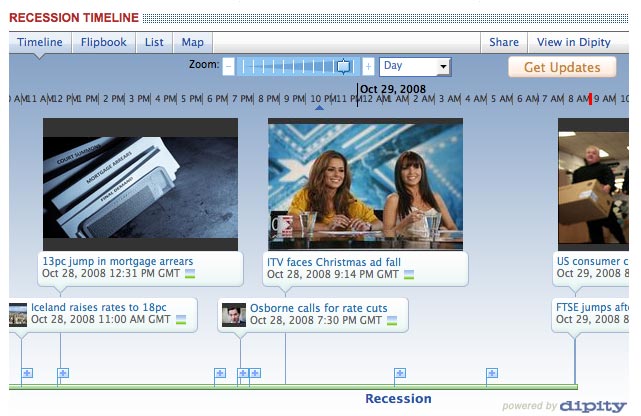Speaking at New Media Knowledge’s (NMK) ‘What happens to newspapers?’ event last night, Justin Williams, assistant editor at Telegraph Media Group, drew the audience’s attention to a new aggregation feature being used in Telegraph.co.uk’s recently relaunched finance channel.
A timeline of the current global recession has been created using free third-party tool Dipity. The timeline, which can also be viewed as a map, flipbook or list, aggregates both Telegraph content and items – predominantly news articles – from other titles.
Aggregating from external sources, which in this instance include the Wall Street Journal, Washington Post and CNN Money, is a first for the site, Williams said.

